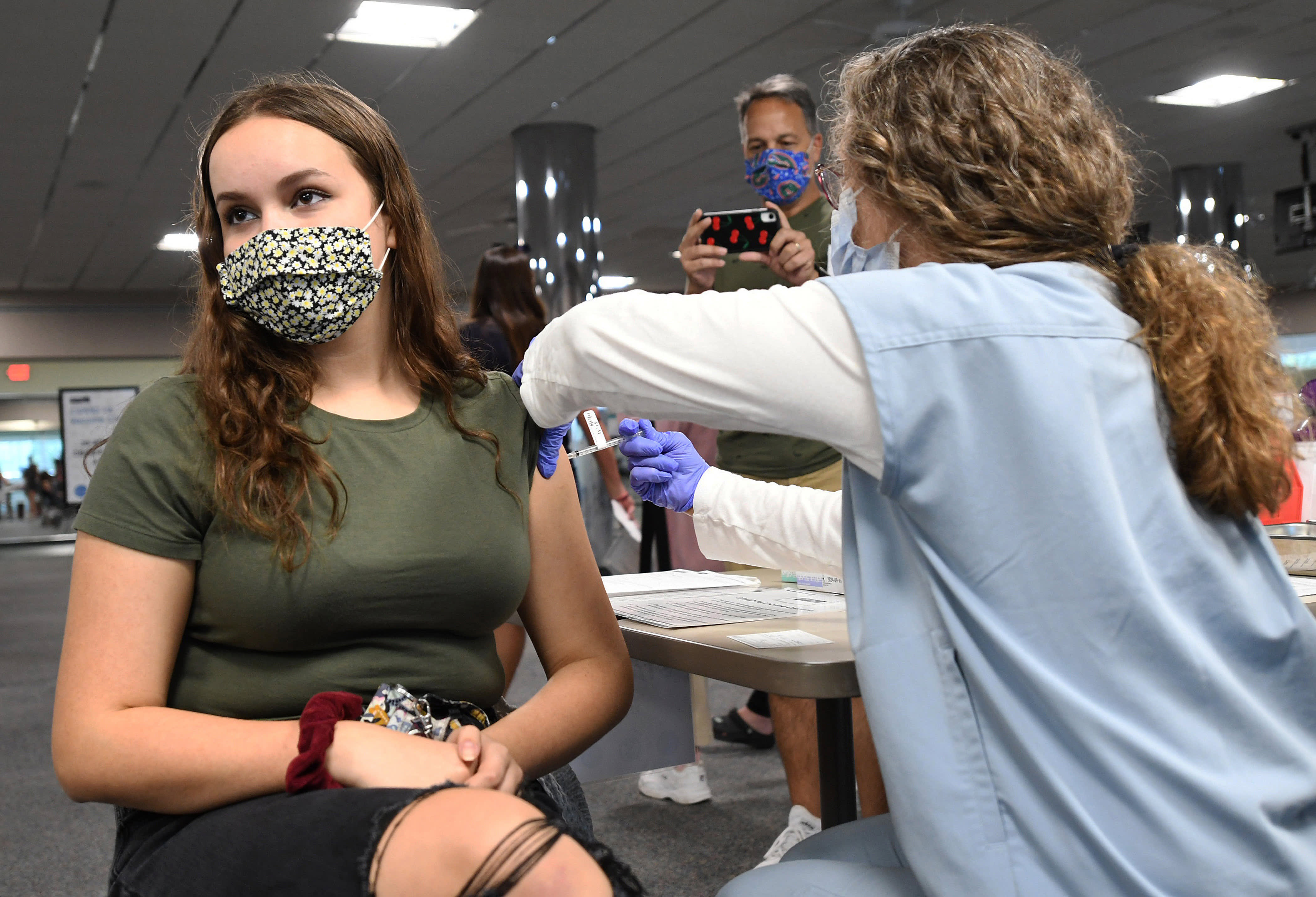
A nurse gives Sherri Trimble, 15, a shot of the vaccine at a vaccination clinic at Health First Medical Centre in Melbourne, Florida.
Paul Hennessy | SOPA Images | LightRocket | Getty Images
Moderna said it has asked the Food and Drug Administration to expand the emergency use of its Covid-19 vaccine in adolescents ages 12 to 17.
If approved by the FDA, it would likely dramatically expand the number of shots available to middle and high school students ahead of the next school year. Pfizer and German partner BioNTech were cleared last month to use their vaccine for 12-to-15-year-olds.
Moderna said on May 25 its Covid vaccine was 100% effective in a study of 12-to-17-year-olds, making it the second shot to demonstrate high efficacy in younger age groups. Moderna’s two-dose vaccine, which is given four weeks apart, is already authorized for adults.
The study the company cited included more than 3,700 adolescents. No cases of Covid were observed in participants who received two doses of the vaccine, while four cases were observed in the placebo group, according to the company.
No significant safety concerns have been identified, and side effects generally are consistent with those seen in an earlier trial of adults, the company said. The most common side effects after the second dose were headache, fatigue, muscle pain and chills, Moderna said.
U.S. regulators are expected to grant Moderna’s request for use in teens. The approval process could take about a month, just in time for fall classes. Pfizer and BioNTech requested expanded use of their shot in adolescents on April 9, for example, and were authorized by the FDA on May 10.
Vaccinating children is seen as crucial to ending the pandemic. The nation is unlikely to achieve herd immunity — when enough people in a given community have antibodies against a specific disease — until children can get vaccinated, scientists say.
Children make up around 20% of the total U.S. population, according to government data. Some 70% to 85% of the U.S. population needs to be vaccinated against Covid to achieve herd immunity, medical experts say, and some adults may refuse to get the shots. More experts say herd immunity is looking increasingly unlikely as coronavirus variants spread.
Vaccinating kids may also hasten the return of in-person learning and after-school extracurricular activities such as sports, art and music, health experts say.
The Centers for Disease Control and Prevention on May 28 eased its public health guidance for summer camps, saying fully vaccinated teens don’t need to wear masks or stay 6 feet away from others.
This is a developing story. Please check back for updates.




